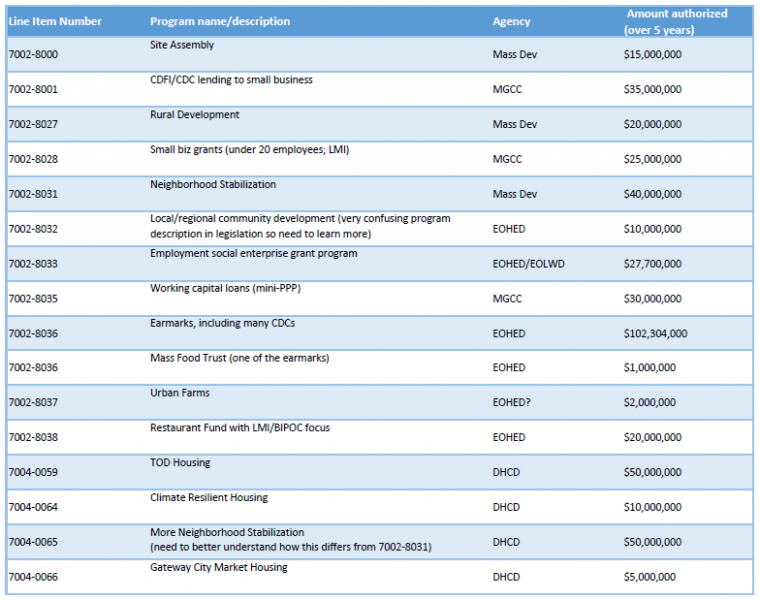Extra Time: MA Legislature Adopts Conference Agreement to Approve Economic Development Bond Bill
In the early morning hours of January 6th, in the last sitting of the 192nd General Court – merely hours before a new legislature would be sworn in, legislators approved the conference report to advance a comprehensive economic development, housing assistance and pandemic relief bill to the Governor’s desk. MACDC was very pleased that the legislature was able to enact this bill that will support small businesses, promote affordable and equitable housing opportunities, and, especially to our neighbors most disproportionately impacted by COVID-19, provide additional tenant protections across the Commonwealth.
Last June, MACDC was invited to testify before the Joint Committee on Economic Development and Emerging Technologies to offer our best recommendations for meeting some of the longstanding issues and emergent challenges brought to light in the wake of the COVID-19 pandemic. Both branches recognized the serious challenges facing our small business community, people of color, immigrants, women, and low- or moderate-income workers and consumers, and focused considerable efforts and resources to avoid deepening the fissures of racial and economic inequality in our state. We appreciate the resolute commitment of so many legislative champions and community partners to achieve this result.
(Separately, the legislature also finally approved Boston’s Home Rule Petition to allow for linkage and inclusionary zoning in Boston – a long sought victory for our Boston members.)
Several MACDC priorities were adopted as part of the Economic Development Bill and, at this time, await the Governor’s signature. Here is a summary of the conference agreement.
The bill includes many important programs and legislative changes impacting housing, small business development and economic development. You can get in depth details by reading the bill ( Bill H.5250 (malegislature.gov)), and here are select highlights, which we believe will be of interest to our members:
- Housing Choices legislation which allows municipalities to adopt pro-smart growth zoning changes by a simple majority.
- Zoning for multifamily housing will be required in all MBTA Communities.
- Appeals Reforms (abutter appeals)
- $20 Million Expansion of State LIHTC
- Tenant Board Members at local housing authorities
- Eviction Record Sealing
- Tenant Opportunity Purchase Legislation.
The legislation also authorizes a wide array of capital programs aimed at housing, economic development, and small businesses. These additional programs of interest include:










